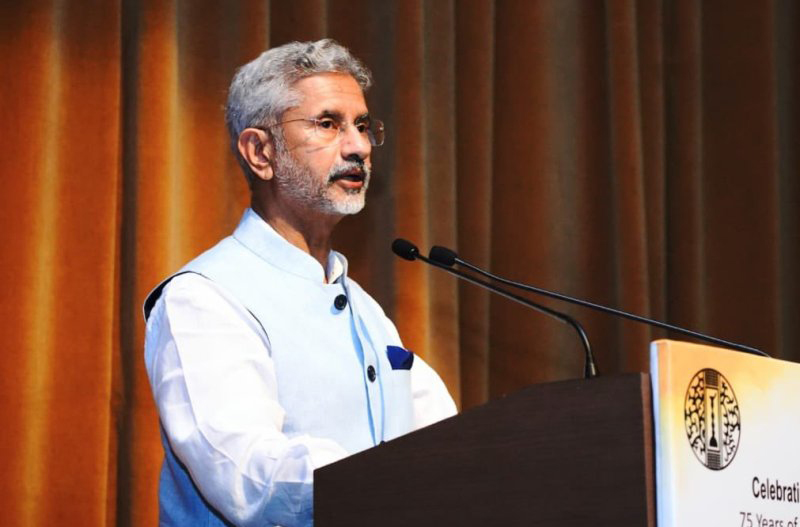S Jaishankar says scrapping of Article 370 'crucial in terms of dealing with the world'

New Delhi/IBNS: External Affairs Minister S Jaishankar Thursday said that doing away with Article 370 in Jammu and Kashmir in 2019 was not just important in terms of national security but also crucial while dealing with the world which viewed it as India’s “vulnerable point” and used it to keep the country off balance.
Answering a question at a special media briefing, he said: “I do think that what was done in 2019 was a very, very crucial step and long-awaited step in terms of national security as diplomatically the whole world used it against us.
“They saw it as a point of vulnerability, they saw it as something that they could keep using, and keep turning, as a way of keeping India off balance. If we don’t get it (Kashmir) right, how do you expect the world to get it right?
“For us the first step was to remedy it at home, and that’s what we did in 2019. Once we sorted it out at home, then the question was how does the world rate it.”
He said that India used “strategic communication” to communicate the scrapping of Article 370 to the rest of the world. “We had to get people to understand what it was about.”
“Our biggest problem was a lot of false propaganda, much of which originated in our own country; we had to deal with that.”
“And because we dealt with it, today in the world it is not a live issue. We (India) were the people who kept it (Kashmir) as a live issue.”
Referring to the successful holding of the G20 ministerial event in Srinagar, he said: “What happened in G20 is just one example. I would like to see more investment there (in Kashmir), more foreign tourists there. I see no reason why J&K should be denied the benefits of not only development but of globalisation that the rest of India is experiencing. I think it is their right, and we should promote it very strongly.”
Asked to rate the changes during the past nine years of the Modi government, Jaishankar said that it is “a more self-assured country with a lot of changes happening”, of a government “which is contributing more, which is caring more for its own people, people at home and people abroad, and which is communicating all of this very effectively to the rest of the world”.
“So it isn’t a single account and a single achievement in a row. There has been very broad progress across multiple fields.”
On India’s UNSC chances, he said that everyone knows where the resistance to India getting a permanent seat is coming from – referring to China.
“On the UNSC, we all know where is the resistance from, but I would say one change that has happened is, today more and more countries accept the need for reform; and frankly feel that if there is one country which should be there (UNSC) it is India. As a potential candidate, our credibility has gone up in this period (nine years).”




